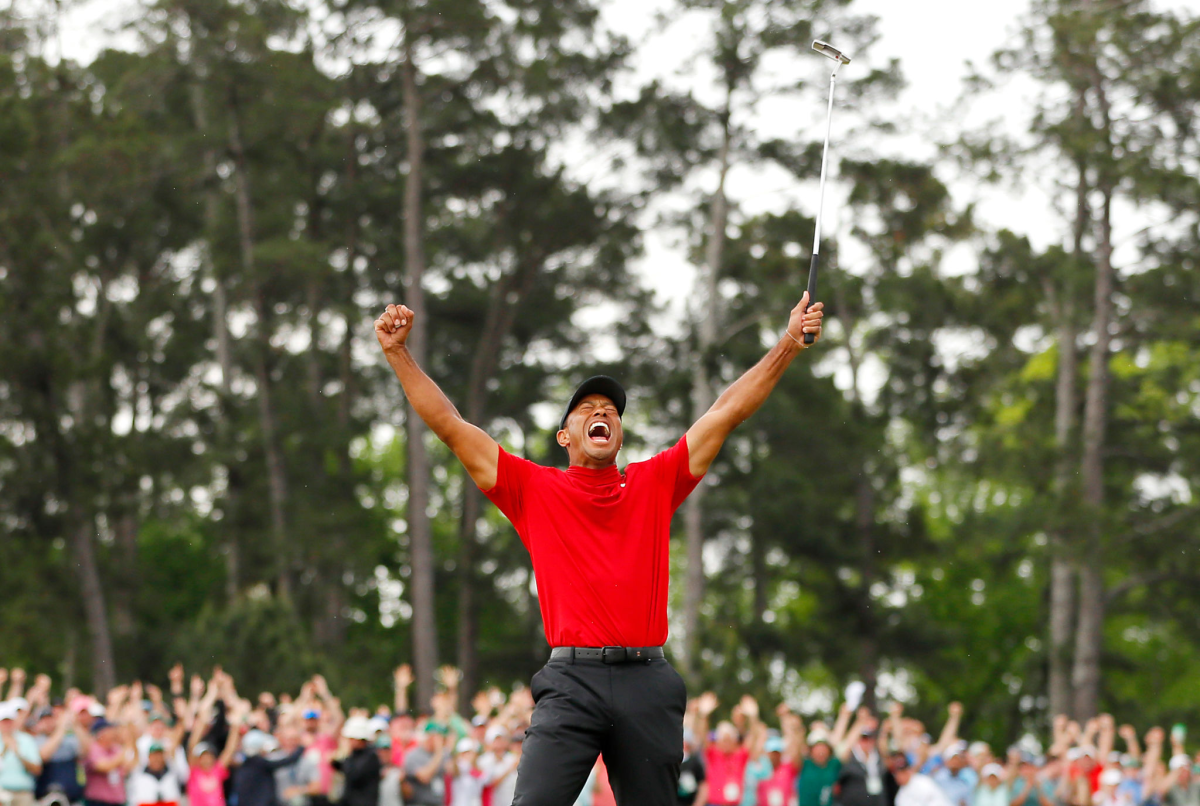After no Black golfers qualify for U.S. Open, USGA president pushes to improve access
Fred Perpall, a Bahamas native who lives in Dallas, went from starting to take golf seriously just 10 years ago to in February becoming the first Black president of the United States Golf Assn.
“The first time I picked up golf clubs was maybe 20 years ago, but I couldn’t really afford it,” Perpall, 48, CEO of the Beck Group, said at the U.S. Open at the L.A. Country Club. “I was a young professional, there was no places to play, and it was just onerous.”
Now a single-digit handicap golfer, he called it “disappointing” that the tournament has no Black players among the 156 competing for a record $3.6-million first-place prize.
Tiger Woods is sidelined while recovering from injury. Harold Varner III — a former PGA Tour player who last month earned $4 million for a LIV golf tour win in Washington, D.C. — on Monday failed to make it through a qualifying event in North Carolina.
Two other Black players, Joseph Bramlett, who finished tied for 37th in the 2022 U.S. Open, and Cameron Champ, who missed the cut in that tournament, also aren’t at LACC this week.
According to the USGA, 126 of the record 10,187 golfers who sought to qualify for the national championship this year identified themselves as either Black or African American. That’s 1.2% or about 1 out of every 100 competitors.
Perpall and Mike Whan, the USGA’s chief executive, told the media this week that the organization is focused on increasing diversity between the ropes.
While wishing “we could just press the magic wand,” Perpall said, “if we’re going to have elite golfers of all backgrounds, we’ve got to improve the accessibility.”
Whan said while USGA beginner programs have helped make golf popular among Black children who are 12 years old, the enthusiasm too often ends by the time they’re 20.
He also conceded that professional golf failed to capitalize on Woods’ monumental Masters win in 1997, but said the pandemic provided another opportunity to diversify the sport.
“A lot of people see their golf courses being full again, but primarily the difference, what’s happened here in the last four years, is juniors, women and people of color,” Whan said.
Perpall played basketball and ran track while earning his bachelor’s and master’s degrees from the University of Texas at Arlington. He graduated from the Harvard Business School’s Advanced Management Program and was on the 1994 Bahamian national basketball team.
As CEO of the Beck Group in Dallas, he leads the firm’s domestic and international architectural design, planning, real estate consultancy and construction businesses.
Perpall was elected to the USGA’s executive committee in 2019. In 2021, he became chair of the championship committee, which during his tenure introduced the U.S. Adaptive Open for golfers with disabilities and announced several championship anchor sites.
After leading a Flag Day commemoration and celebration of the Army’s 248th birthday as part of his duties at LACC, Perpall told The Times he remembers being 22 and seeing Woods on TV.
“Seeing someone that looked like me play golf at that kind of level — with that kind of charisma — was inspiration to me,” he said. “Sometimes you have to see it in order to achieve it.”

Tiger Woods celebrates after sinking his putt on the 18th green to win the 2019 Masters at Augusta National Golf Club.
(Kevin C. Cox / Getty Images)
As USGA’s first Black president, Perpall said he wants to make sure “kids of color and of all backgrounds know that there’s absolutely room in this game … and at every level.”
He added: “I don’t just want, you know, my presentation here and my position to be one of inspiration. We want it to mean something. And that’s why we’re spending our time and our effort and our resources to make sure we open up more pathways.”
Perpall also insisted that golf can offer more than just trophies, riches and fame.
“Golf oftentimes is the entryway into more intimacy and deeper relationships within your communities,” he said. “The beautiful thing about golf is who it puts you with, and where it takes you. And I think if we’re going to have the cities we want, if we’re going to have the country we want, we have to find more ways to spend time with each other across race.”
He continued: “And that’s one of the things that I’ve found as an African American — that golf has done for me. It’s put me with great people. It’s allowed me the opportunity to build deeper relationships, and these relationships will be part of bringing our cities and our communities together more closely across racial boundaries. And so that’s why I love golf. And that’s why I hope more young kids of color will be interested in golf, because of what it does in your life.”
Herbert Lowe is a Times visiting academic fellow and senior lecturer at the University of Florida College of Journalism and Communications.
For all the latest Sports News Click Here
For the latest news and updates, follow us on Google News.
